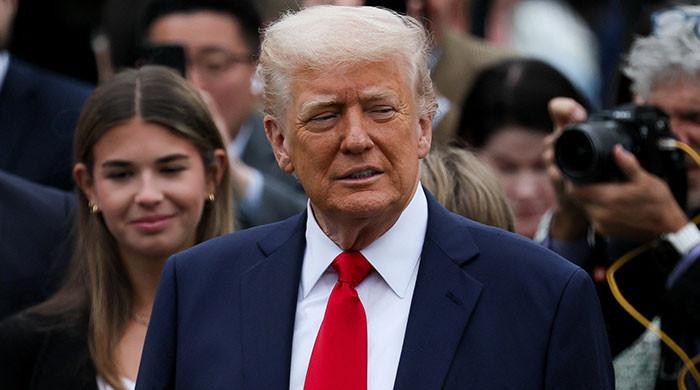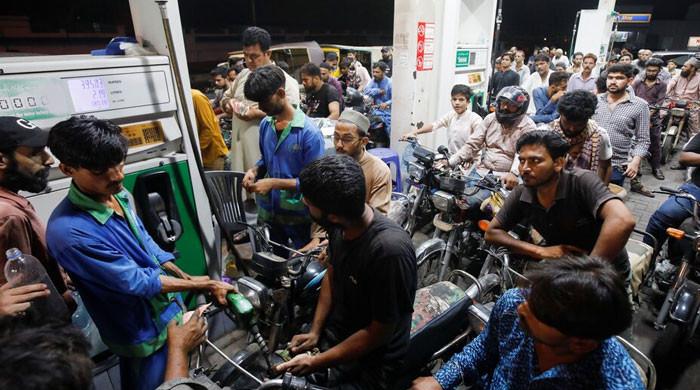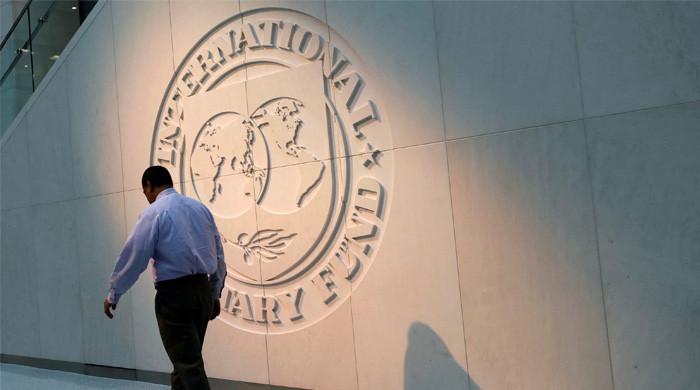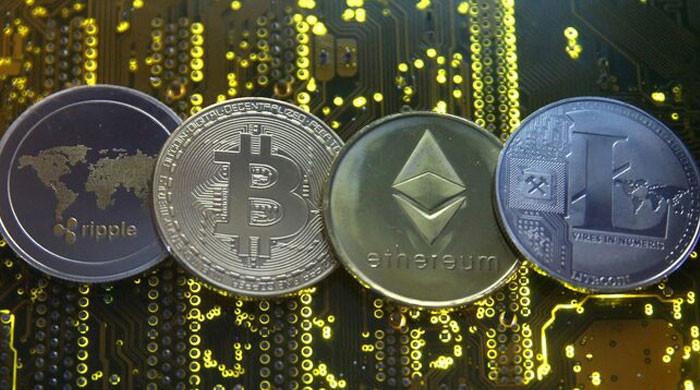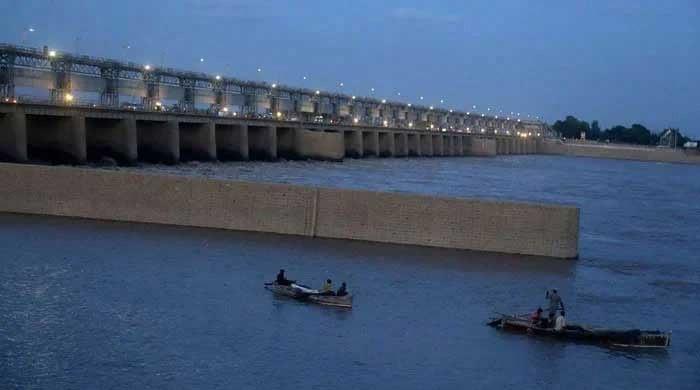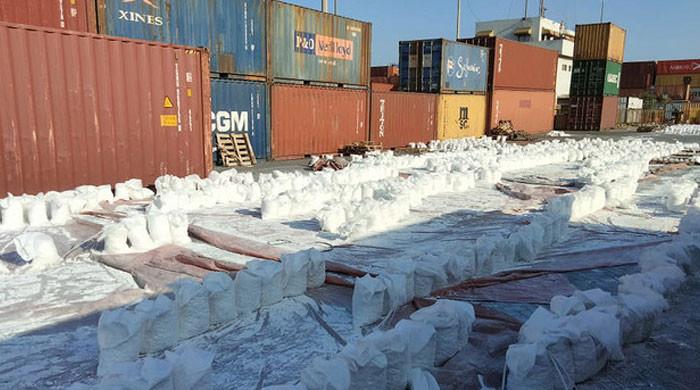Economic inconsistency and Pakistan's future
Pakistan at the moment is attempting to crawl out of a crisis created by three-and-a-half years of incompetent governance
June 02, 2022
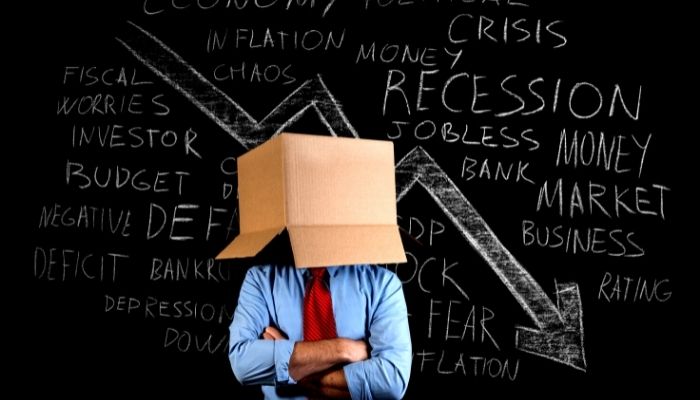
Pakistan at the moment is attempting to crawl out of a crisis created by three and a half years of incompetent governance. But all of us know that the PDM government, which has assumed power for an indefinite period of time, will struggle to solve the problems created both due to domestic inadequacies and the international market.
The increase of at least Rs30 per litre in the price of petroleum demanded by the IMF after Imran Khan originally offered a subsidy on the product will make everyone’s lives a little harder, a little more difficult to sustain. This includes not just the poorest of the poor but also the salaried middle class which is of course, far more reluctant to seek handouts. Creating an economic policy for Pakistan is also being complicated by the lack of consistency seen over the years and the changes that come with every government. Across the country are scattered half-finished projects begun by one government but which the next has refused to complete, instead beginning its own development plans. This serves no one.
The four finance ministers who served under the PTI’s three years in power achieved little, and the last of them, Shaukat Taien, himself, said that a lack of planning has left the economy in a mess. It does not take an experienced expert to tell us this. There are really only a handful of ways to build up the resources Pakistan urgently needs as the millions in the country face a situation akin to slow starvation. The 50 per cent of children who are stunted and unable to reach the expected height for their age are proof of this. The Rs2,000 additional cash handout offered by PM Shehbaz to 14 million families may offer a minuscule amount of relief, but Rs2,000 in this age of inflation vanishes quickly.
If we are to bring real benefit to people, there are only three sources from which we can add money to the exchequer while also increasing our exports. The decision made by the PML-N to prevent the import of luxury items will really offer very little in terms of resources given the very small number of people who actually buy imported cheese, chocolate, or other similar items. What we really need is to increase our exports and consider why Bangladesh, for example, has moved ahead of us in the export of cotton textile items, a market once held by Pakistan.
The real issue, however, is how to add substantial resources to what we have. We cannot cut on debt servicing given the huge debt we have accumulated and will pass on to future generations, for other reasons we cannot cut on defence – so we are left with attempting to cut back on administrative expenses. These three sectors make up the largest chunk of the amounts that go out as expenditure. Cutting administration means cutting down on what is spent by ministers, bureaucrats, and others in official positions. After all, not every official needs to drive a car with a flag or be escorted by dozens of policemen.
There is also other huge wastage in departments which can be cut back on to help save money. After all, for many years, India, which notably until the Covid-19 crisis was faring far better economically than us and is still predicted to assume position as a world economic power in the years ahead, had no issues of pride or ego with ministers and even the prime minister riding in the tiny Marutis made mainly by the country itself. For us, nothing but exported luxury limousines or even helicopters will do. We also need to think of our country as a whole, even though it is, of course, a federation, with each province holding considerable power.
The federation needs to be drawn together in order to solve the water disputes currently disrupting relations between Punjab and Sindh, while Balochistan too cries out for water. These needs can only be met if we plan carefully and perhaps most importantly, put curbs to prevent Pakistan’s population reaching the anticipated mark of 380 million by 2050. This would be a disaster – perhaps a bigger disaster than anything else.
We already lack resources to offer to the people we have. Water is running short by the day. Pakistan now ranks among countries with increasingly severe water scarcity, mainly because we have over the last seven decades polluted the abundant water we had and not developed programmes to conserve rainwater or devise other solutions beyond large trams, although environmentalists and water experts suggest far smaller reservoirs and other systems to harness water if necessary, even from the sea.
We know that the PDM government will not be able to manage much. In the first place, it is unlikely that the parties will hold together for long given that the alliance consists of eight groups, most with different ideologies and separate plans. If only the PML-N and PPP, the two biggest parties in the group, stayed united, this alone would be a miracle. But what the PDM can do is work out a plan for the future and put it on paper. It is a welcome sign that we are hearing more open talk from the media since the Imran Khan government departed, especially on Balochistan and its problems. Popular artists have also attempted to highlight the existence of a province that has too often been virtually forgotten and subjected to an immense amount of abuse. Families still look for loved ones who disappeared years or even decades ago, and as PM Shehbaz Sharif himself said, the resources of Balochistan are taken away from the people and packed out to the Punjab and other provinces. This is a travesty of justice and equity.
Efforts need to be made to draw back Balochistan into the mainstream. School textbooks often fail to highlight what other parts of the country look like or what their main features are in terms of culture or production, beyond the cliched pictures of children in Sindhi topis and ajrak or whatever other garment is deemed to reflect the culture of that province. This offers no real meaning and builds no real empathy for other provinces.
We need to find ways to build this unity and put in place an economic plan that all provinces can participate in and then, in turn, gain from the outcome. Expert help is needed for this, especially if we know that IMF policies have not helped people rise out of poverty in other regions. We must find a way to achieve this and also end Pakistan’s chronic fuel and power crisis, which haunts us year after year, so that progress and an effort for change is possible.
Ideally, this movement for a better Pakistan should be led by young people, with many groups in separate places working for change in various sectors. Efforts should be based essentially on the laws and fundamental issues laid out in the constitution of Pakistan rather than turning to religion as a prop and using it in a way to confuse and radicalise people. The work of leaders, after all, is to build the country and not to continuously cite examples from history while there are no signs of any real change at the ground level.
The writer is a freelance columnist and former newspaper editor. She can be reached at [email protected]






